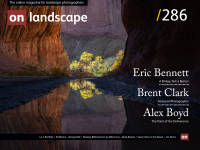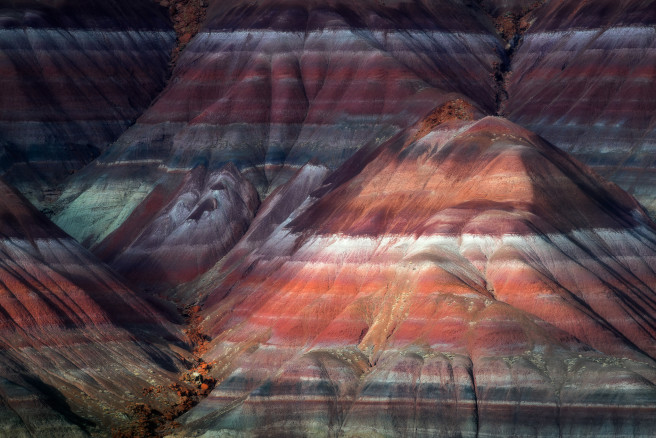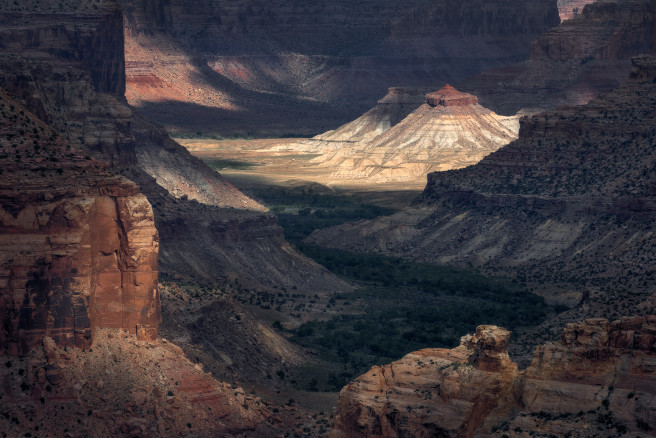Using the Camera for Expression, Connection, and Immersion

Eric Bennett
As a full-time nature photographer, author, and conservationist, I hope to share the value that wilderness has in its pure, unaltered state. In a world where we are disconnecting from nature more and more every day, I can’t think of another pursuit more worthy of my time and energy. I believe that if I can capture a scene in the right way, my photographs will inspire others to protect the last few wild places we still have left.
I currently live just outside of Salt Lake City, Utah with my wife and three children. While much of my photography is focused on the incredible scenery near my home, I have traveled to over thirty countries to capture the diverse and remarkable beauty of all different environments.
While I spend the majority of my time in nature without ever pulling out my camera–or without even having a camera with me at all, for that matter–many of my most meaningful experiences have been while carefully studying a subject or scene through my viewfinder. As the years go by, I find my camera to be more and more of a complement to my experiences, deepening the connection I have with natural subjects. The camera, able to see things in ways that the naked eye is unable to, often causes me to have a more complex and intimate conversation with nature.
In the last ten years that I have dedicated myself to photography full-time, I have formed a stronger relationship with nature than I ever had before. I have been able to recognise so many of her different sides, moods, and expressions. I have seen how light can come in so many different qualities other than just bright or dark, strong or soft. I have learned so much more about how geological and living things are formed, how they decay and erode, and how fragile or resilient they actually are. On the front lines, experiencing it firsthand, I have become so much more aware of the destruction we have inflicted upon the natural world, the impending threats it faces, and how little wilderness is still left. I am not so certain these things would have happened had I not been practising photography all this time.
That being said, even while practising photography in nature, I am not implying that I spend all of my time looking at the world through my camera. In fact, I would argue that the absolute most important aspect of photography is observation, which begins not in the viewfinder but within the mind. I first need to experience things for myself–something must call my attention, a moment must move me in some way–before I even attempt to compose and record it. It is so important to first walk around, probably with the camera still put away, so that you can be as open as possible to your surroundings. The camera only comes out towards the end of my experience with a specific subject or scene once I have already sensed something meaningful and have mostly visualised how I could possibly photograph it.
A Barrier
Even though I have found the digital camera capable of drawing me further into an experience, as a sophisticated and technical machine, it can just as well have the opposite effect and become a distraction instead. The more we have to focus on operating the camera, how we are photographing a scene, and what equipment we are using to record it, the less connected we will feel to the subject we are photographing. Paying more attention to the tools you are using than what you are creating with them will dilute whatever experience you could potentially have. Consequently, focusing more on how you are saying something rather than what you are actually saying and–even more importantly–why you are saying anything in the first place.



